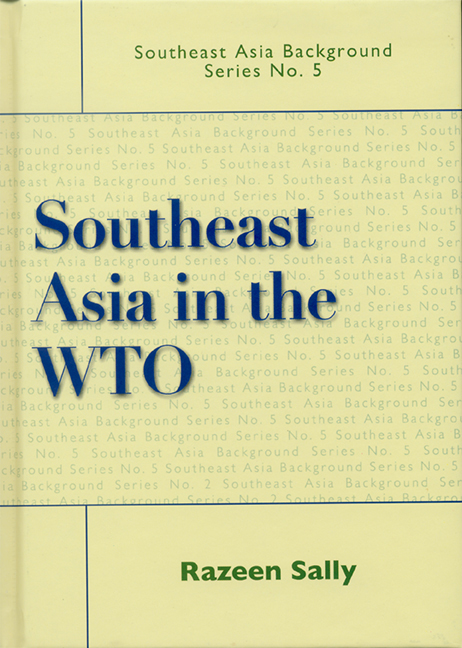1 - Background
Published online by Cambridge University Press: 21 October 2015
Summary
INTRODUCTION
Trade policy is back on the radar screen in Southeast Asia, having been overshadowed by monetary and financial matters since the Asian crisis. This is due primarily to the New Regionalism, the proliferation of initiatives to form free trade agreements (FTAs) in the Asia-Pacific. Singapore blazed the trail, with others now trying to catch up. Not too far away, China has acceded to the World Trade Organization (WTO), crowning the most sweeping set of market-oriented reforms seen in the past decade. And beyond, the WTO finally witnessed the launch of a new round of multilateral trade negotiations in Doha. The round, however, came to a screeching halt with the collapse of talks at the WTO's Fifth Ministerial Conference in Cancun, Mexico, in September 2003. This fresh crisis raises grave doubts about the future of the WTO and that of the multilateral trading system — with weighty implications for Southeast Asia. Time, therefore, to take a fresh look at Southeast Asia in the multilateral trading system.
From the mid-1980s to the early 1990s, a critical mass of ASEAN members was proactive in the GATT (General Agreement on Tariffs and Trade, the WTO's predecessor) and, notwithstanding internal differences, presented a common front. ASEAN “hung together”, and to good effect, in the Uruguay Round (the last round of multilateral trade negotiations).
A decade or more later, ASEAN members, instead of hanging together, seem to be “bowling alone” in the WTO. Why has ASEAN co-operation broken down in the WTO? Is there a chance of resuscitating it? How, if at all, can ASEAN hang together in the WTO? Or will ASEAN members bowl alone into the WTO's middle-distance future?
The focus of this policy essay is the ASEAN-5: Singapore, Malaysia, Thailand, Indonesia, and the Philippines. Brunei and the new members (CLMV: Cambodia, Laos, Myanmar, and Vietnam) do not figure, except by way of background and brief reference. The reasons for this invidious choice are simple. The ASEAN-5 are long-standing and, by developing country standards, reasonably active members of the GATT/WTO.
- Type
- Chapter
- Information
- Southeast Asia in the WTO , pp. 1 - 14Publisher: ISEAS–Yusof Ishak InstitutePrint publication year: 2004



